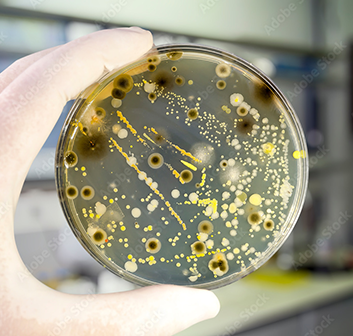The catastrophic pandemic caused by SARS-CoV-2 in 2020 attracted the attention of the general public towards the spread of harmful pathogens facilitated by high traffic surfaces, highlighting the importance and urgency of an economically and environmentally sustainable solution for antimicrobial surface as a potential strategy to mitigate the spread of disease outbreaks.
Nanoparticle (NP) filled coatings, with recognised effectiveness against bacteria, viruses, and fungi, could be valuable candidates for developing antimicrobial surface and minimising the surface adhesion of pathogens. However, due to many technical challenges, including difficulty to develop nanocoatings with a long-term antimicrobial capability, durability under real conditions, and safety assurance, their application at industrial level remains limited.
The SUPREME consortium will develop a platform of efficient and multifunctional antimicrobial nanocoatings, building upon bespoke TiO2 nanoparticles that have demonstrated an exceptional antimicrobial ability at lab scale (TRL3). Two sustainable routes: 1) customised core/shell and advanced functional nanoparticles and 2)sustainable bio-based cellulose materials and nanoparticles, will be pursued in this project. Bearing in mind the specific requirements of individual applications, the SUPREME consortium will coordinate the antimicrobial testings to its effectiveness against a wide range of pathogens. Production of the SUPREME coating will follow a sustainable-by-design approach that considers both toxicity and environmental impact from outset to guarantee both market acceptance and sustainability of the overall process whilst having a robust safety assurance in place for human health. The scaling-up production of these sustainable materials and their validation according to the industrial requirements will enable to reach the TRL6 by the end of the project.



